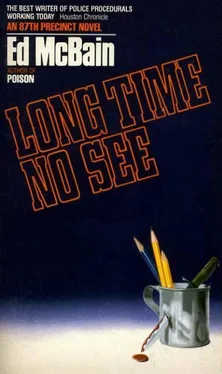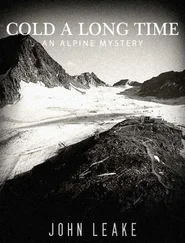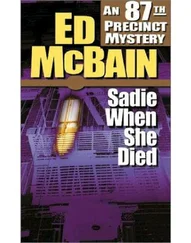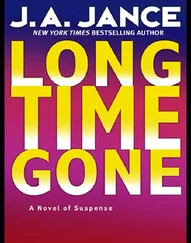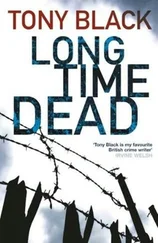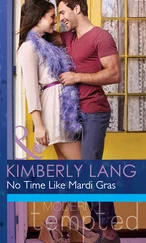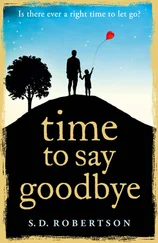That was Danny Cortez talking about the third day of December, ten years ago, when Lieutenant Roger Blake was killed by a mortar fragment.
It was a terrible thing. Alpha took cover when the attack started, and then they couldn't get to the lieutenant in time... In the war over there, you had to pick up your own dead and wounded because if you didn't they dragged them off and hacked them to pieces. The enemy, you understand me?... Alpha told us later they couldn't go after him because of the mortars. All they could do was watch while he was dragged in the jungle. They found him later in an open pit — cut to ribbons. The bastards used to cut the bodies up and leave them in open pits... With bayonets, they did it.
That was still Danny Cortez, elaborating on the theme of jungle warfare. This now was Jimmy Harris talking about a rape that had never taken place.
Lloyd told us to go on up... Upstairs... The boys told Lloyd to shove it up his ass. Then they all grabbed him, you know, pulled him away from Roxanne where they were standin there in the middle of the floor. Record still goin, drums loud as anything. Guy banging the drums there.
(All we heard was the noise, Cortez said. You ever been in a mortar attack? It makes a lot of noise, even from a distance.)
There's this post in the middle of the room, you know? Like, you know, a steel post holdin up the ceiling beams. They push him up against the post. I got no idea what they fixin to do with him, he the president, they askin for trouble there. I tell them Hey, cool it, this man here's the president. But they ... they... they don't listen to me, man. They just... they keep holdin him up against the tree, and Roxannes cryin now, she's crying, man... The post, I mean. Roxanne's cryin. They grab her. She fightin them now, she don't want this to happen, but they do it anyway, they stick it in her, one after the other, all of them ... They carried her outside afterward, they picked her up and took her out... Cause she bleeding. Cause they hurt her when they were doin it.
(All they could do was watch while he was dragged in the jungle, Cortez said. They found him later in an open pit — cut to ribbons. The bastards used to cut the bodies up and leave them in open pits. With bayonets, they did it.)
“What is it, Mr. Carella?” Leider asked again. “Have you hit upon something?”
The dog was in a small office on the ground floor of the police garage, where a uniformed cop had promised to watch him while Carella was upstairs. The cop wanted to know what was wrong with the dog; he’d tried feeding him and the dog wouldn’t take nothing. Carella said he was a seeing-eye dog. The cop looked at the dog and said, “So what does that explain?”
“He’s trained to accept food only from his master.”
“So where’s his master?” the cop asked.
“Dead,” Carella said.
“Then the dog’s gonna starve,” the cop said philosophically, and picked up the magazine he’d been reading, dismissing with that single gesture the vast and complicated world of canine problems.
Carella put one hand into the dog’s collar and led him back to where he’d parked the car. He did not want a dog, and he especially did not want a dog that would not eat. He could visualize the dog getting skinnier and skinnier and finally wasting away to a shadow of his former self. He wondered if the dog had really been given all the shots a dog needed, whatever those shots might be. He did not want a dog, nor did he want a dog wasting away, but most especially he did not want a rabid dog wasting away. He decided to look at the assorted hanging clutter of metal junk on the dog’s collar.
There was a brass tag stamped with the words Dog License , and the name of the city, and the year, and the six-digit license number. There was a stainless-steel tag stamped with the name and address of a Dr. James Kopel, presumably a veterinarian, and beneath that the words I Have Been Vaccinated Against Rabies, and the year, and a four-digit number. There was another stainless-steel tag with the words Guiding Eye School stamped on it, and beneath that the Perry Street address of the school. There was yet another stainless-steel tag stamped with the words I Belong to James R. Harris , and beneath that, Harris’ address on South Seventh and a telephone number.
There was also a stainless-steel key.
Carella could not imagine why a dog was wearing a key around his neck until he saw the word Mosler stamped on the head of the key just below the hole where a metal ring fastened it to the collar. There was dirt — or rather, soil — caked around the edges of the hole. The key was a safety deposit box key, and Carella was willing to bet his next year’s salary that it had once been buried in the flower box on the Harris window sill. He knew the name of Harris’ bank because he’d seen it on the passbook he and Meyer found in the apartment — First Federal on Yates Avenue. He also knew he would need a court order to open that box, key in hand or not. It did not hurt that he was downtown at the Headquarters Building; the municipal, state and federal courthouses were all scattered here within a five-block radius. He took the key from the dog’s collar, and then led the dog back to the cop in the office.
“What, again?" the cop said.
It was a little past two o’clock when Sam Grossman called Detective George Underhill at the Four-One.
“I’ve got a report on that blood sample,” he said.
“What blood sample?” Underhill asked.
“From the sidewalk.”
“Oh, yeah,” Underhill said. He had completely forgotten his request until just this moment. He had, in fact, forgotten it almost the instant after he’d called the lab last night. Now here was Grossman with a report. He did not know what he would do with the report, since there’d been no word from any of the city’s hospitals about anyone seeking treatment for a dog bite. He picked up a pencil and said, “Okay, let me have it.”
“First of all, yes, it’s blood,” Grossman said, “and secondly, yes, it’s human blood.”
“What group?” Underhill asked.
“You might be lucky. It’s group B.”
“How does that make me lucky?”
“You’d be luckier if it was group AB because only three to six percent of the population falls into that group. As it is, your sample falls into the ten-to-fifteen-percent grouping.”
“That makes me lucky, huh?”
“It could’ve been O or A, which are the most common groups.”
“Okay, thanks a lot,” Underhill said.
“Anything else I can do for you?”
“Not unless you know somebody got bit by a dog.”
“Was this a dog-bite victim?”
“Yeah.”
“The dog wasn’t rabid, was he?”
“No.”
“How do you know?”
“Guy told the investigating patrolman.”
“Because if he’s rabid...”
“No, no, he’s a seeing-eye dog, how could he be rabid?”
“Seeing-eye dogs can be rabid,” Grossman said. “Same as any other dog.”
“Yeah, but this one had his shots.”
“Who’d he bite?”
“We don’t know. Somebody who tried to assault his owner.”
“What do you mean?” Grossman said.
“Somebody tried to assault the owner, and the dog bit him.”
“A blind man?”
“Yeah, the dog’s owner. He’s a seeing-eye dog, isn’t he? So naturally the owner’s—”
“Is this something you’re working with Carella?” Grossman asked.
“No,” Underhill said. “Who’s Carella?”
“Of the Eight-Seven.”
“No, I don’t know him.”
“Because he’s working some homicides involving blind victims.”
Читать дальше
